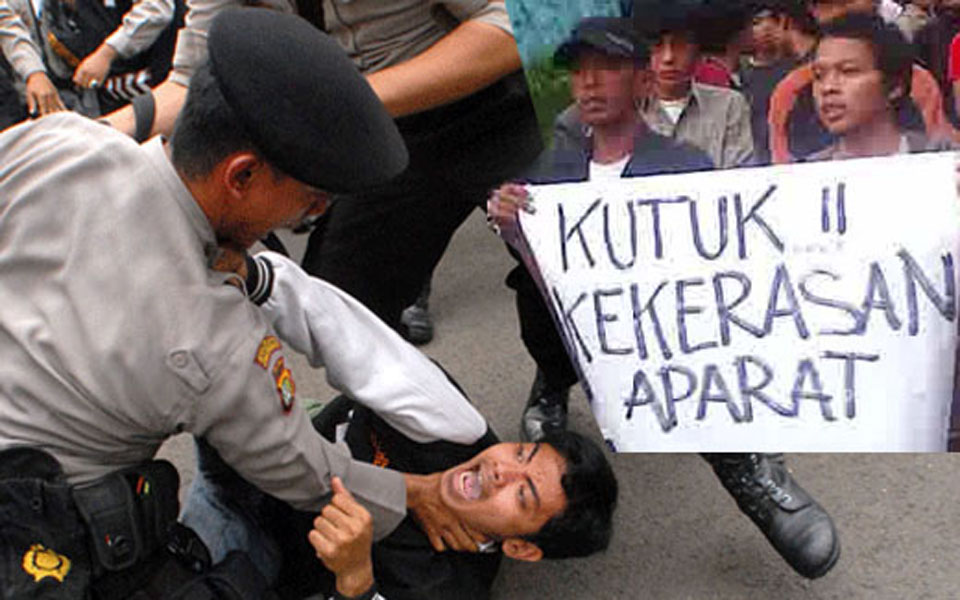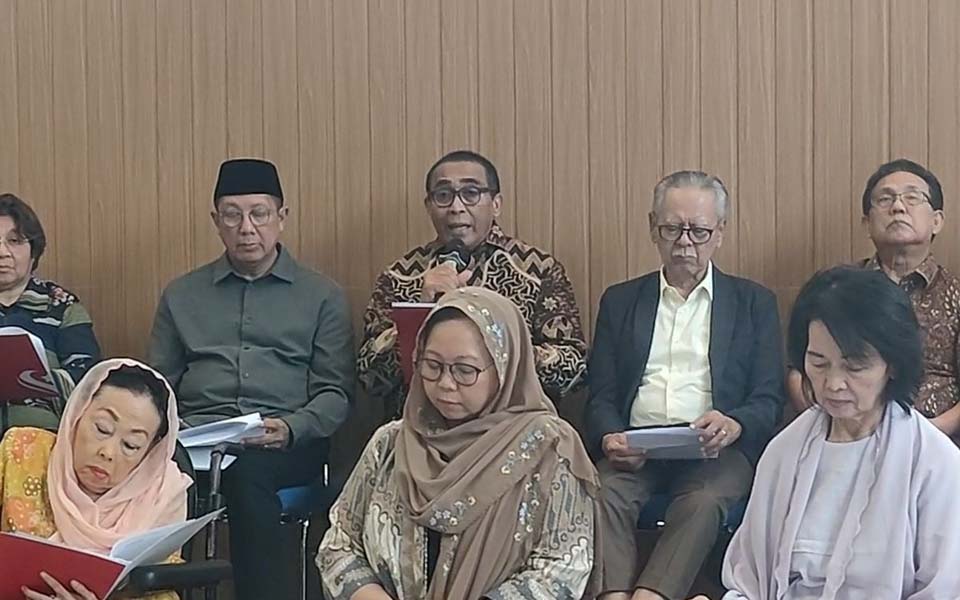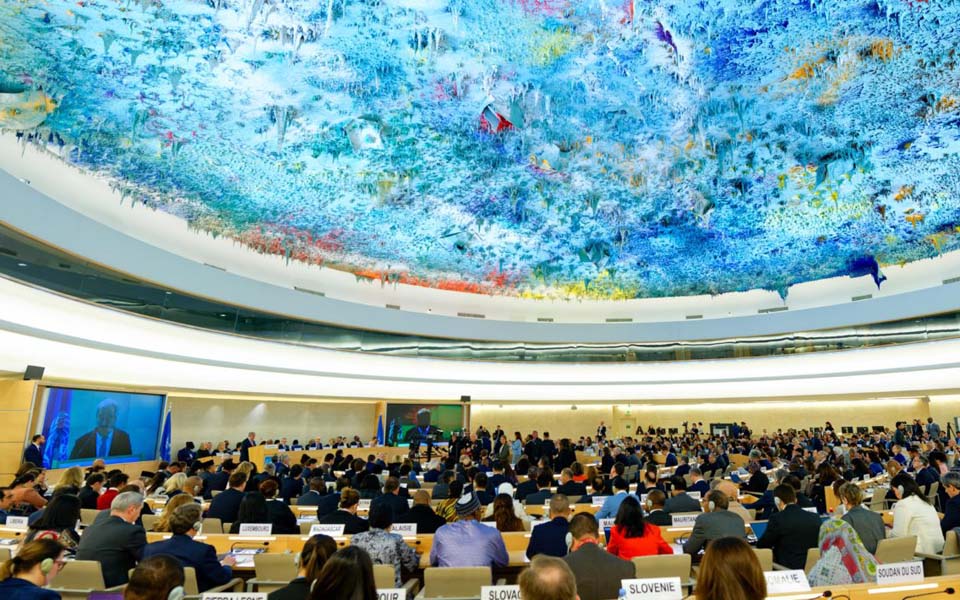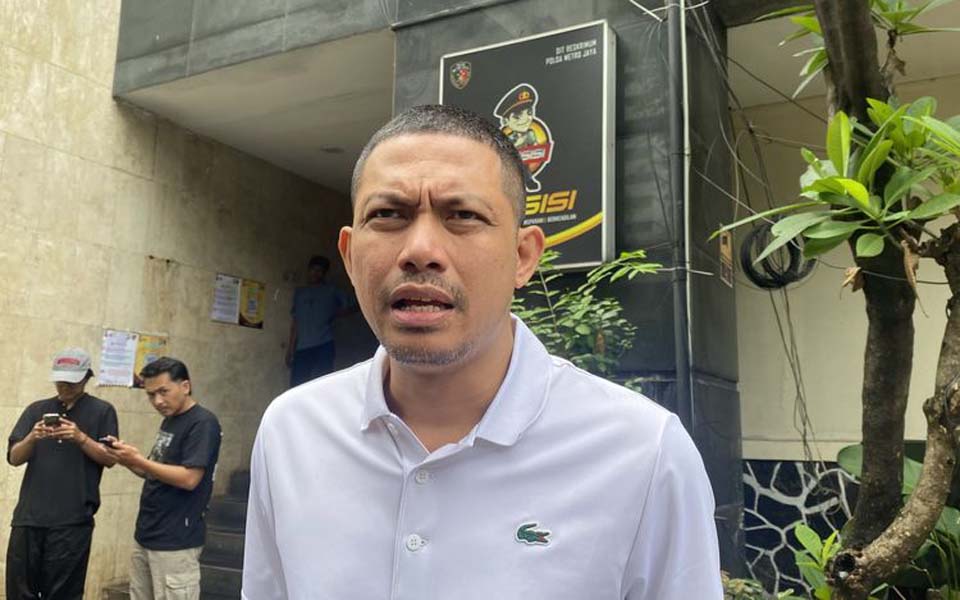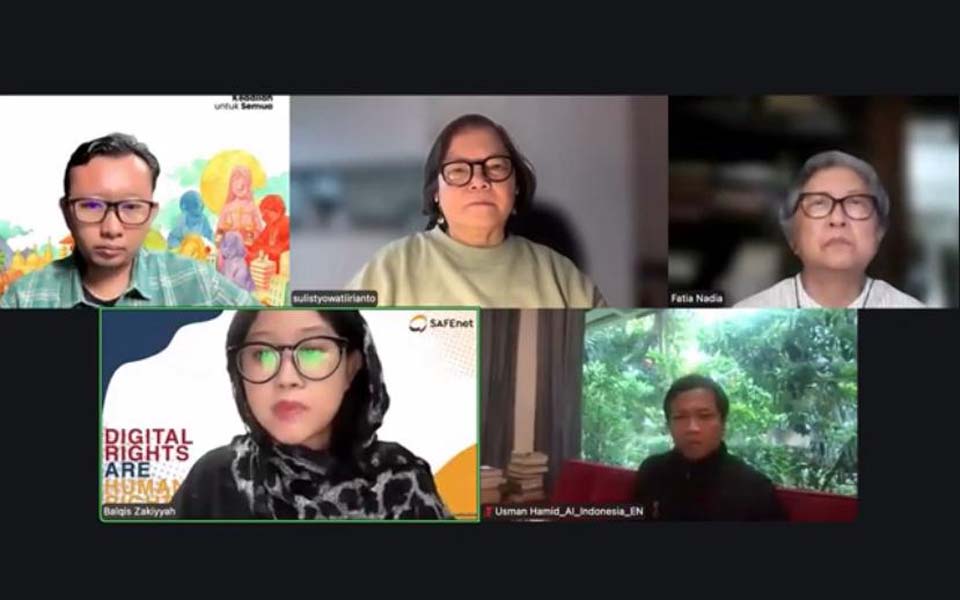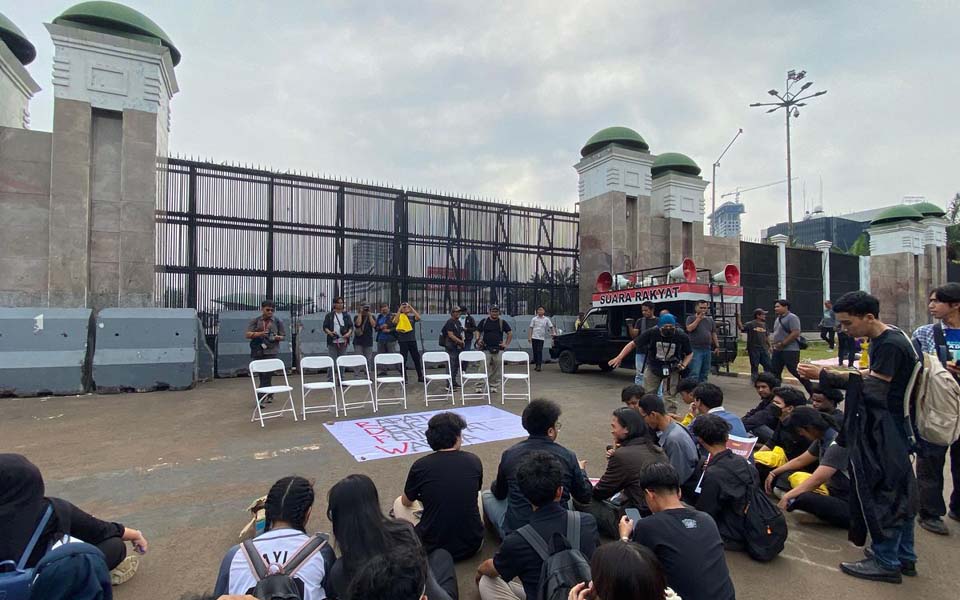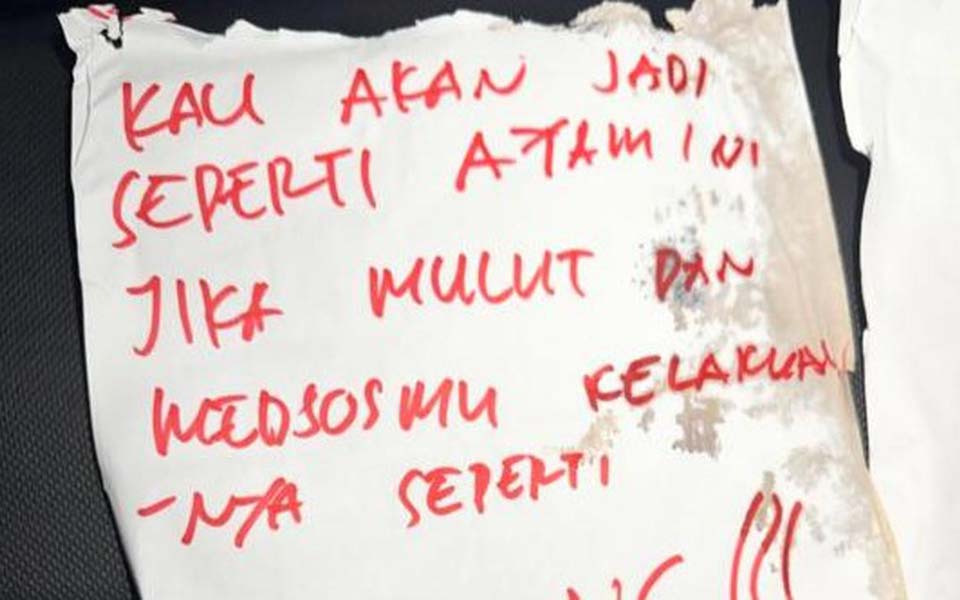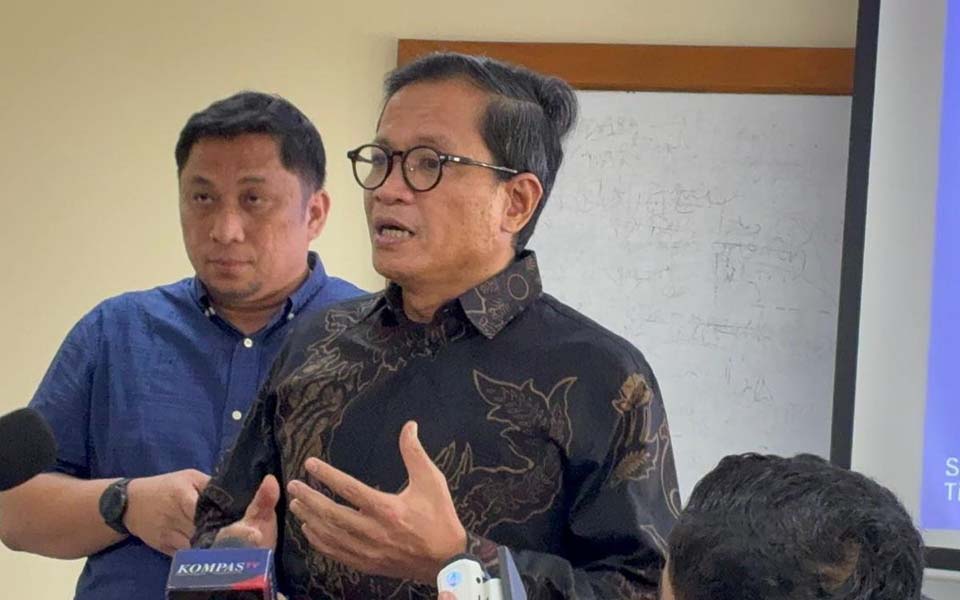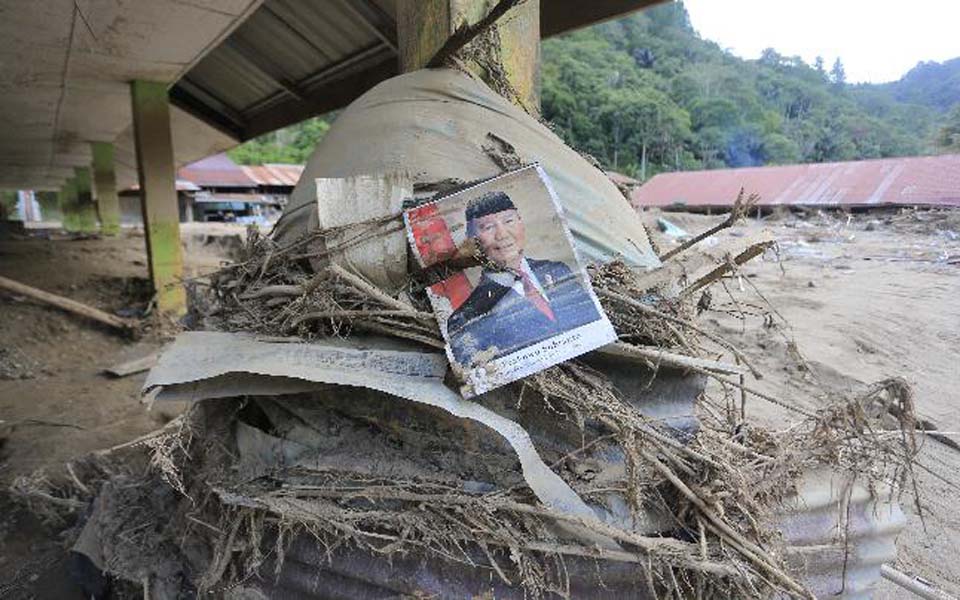Jakarta – The Indonesian Legal Aid Foundation (YLBHI) is urging the state to carry out a substantive internal reform of the National Police (Polri). This is because according to data gathered by the YLBHI and the Legal Aid Foundation (LBH) there were 115 cases of police negligence in handling problems with civilians. Since 2016 this has involved at least 1,120 individual victims and 10 communities throughout Indonesia.
“Because of this it’s clear that there are big concerns about Polri today. Not just reform at the legislative level, but more importantly in the police’s culture”, said YLBHI Chairperson Asfinawati at a press conference in Jakarta on Monday July 1.
Asfinawati said that internal reform of the police over the last 20 years has not shown any change. She said that the police still prioritise the use of violence and torture in carrying out law enforcement.
“Torture is the option the police are most interested in, it’s very easy, if [suspects] are tortured only then do they confess”, she asserted.
“Yet these were the kinds of methods used in Europe in the sixteenth century. There’s no difference, it’s like Europe in the dark ages”, she added.
YLBHI Advocacy Division Chairperson Muhammad Isnur explained that the violations by police were dominated by torture which, he explained is used to make suspects confess to crimes.
“Yet a confession is no longer accepted as evidence. The LBH-YLBHI assisted in 49 cases of torture involving as many as 55 victims, 16 of which died [as a result of the torture]”, concluded Isnur.
Isnur added that they found scores of cases being handled by the police which had stalled (undue delay). Several among them were attacks on human rights defenders such as anti-corruption, environmental, agrarian reform and customary community activists.
“The most recent we know about is the [2017 acid attack against senior Corruption Eradication Commission investigator] Novel Baswedan case. Which has still not been resolved”, said Isnur.
The other pattern causing investigations to be delayed unduly is when the party being reported is a member of the national police. Out of 28 cases of undue delay, eight of these were torture cases where the police were the party being reported.
This, said Isnur, shows that the national police support impunity for the perpetrators.
“The latest was a case of child rape by a police officer who forced them to drink alcohol in Manado. The LBH reported the case to police but no suspect has yet been named. Police impunity must be abolished”, he added.
Meanwhile YLBHI Advocacy Division Deputy Chairperson Era Purnamasari noted that aside from cases of illegal levies by police which remain high, there were 37 cases of arbitrary arrest and abuse carried out without arrest warrants or clear grounds. The majority were misdemeanors involving the poor.
“We have seen that this abuse mostly takes place at Polsek [sectoral police], then Polda [regional police]. There are many cases of torture but the Mabes [police headquarters] closes its eyes to it”, said Purnamasari accusingly.
Political tool
A researcher from the Lokataru law and human rights foundation, Anis Fuadah, explained that police are also often used as a tool by the political elite.
Indications of this can be seen in the police’s performance during the 2019 presidential and legislative elections. Fuadah emphasised that during the 2019 presidential election, the police were more reactive in pursuing a perpetrator if they were from the camp opposing the government.
“This can be clearly seen from our records, discriminative behaviour where accusations of makar [treason, subversion, rebellion] were only used against the opposition. Meanwhile in incidents that were the same, there was no action against those aligned with the government”, said Fuadah at a press conference at the Lokataru office in Matraman on Monday.
Fuadah also gave the example of former Pasirwangi Sectoral Police Chief Sulman Azis in Garut, West Java, who admitted to receiving directions from his superiors to record data on public support. But soon after the case evaporated after Azis withdrew his confession.
“Yet the police’s responsibility is in the name of the law not in the name of the president or the government. But this is what we have recorded, Polri is still a political tool”, added Fuadah.
The national police headquarters has spoken out in response to the legal advocacy group’s findings. Police Public Relations Public Information Bureau Head Brigadier General Dedi Prasetyo claims that out of the many cases being handled at the level of Polsek to the police headquarters, the level of crime clearance has been as high as 60 percent.
Crime clearance is the number of cases that are reported and that have been resolved by the police.
“Out of so many millions of cases handled by Polri from the level of Polsek, Polres [district police], Polda and the Mabes Polri, the level of crime clearance is more than 60 percent, the highest in the world”, said Prasetyo when sought for confirmation on Monday.
[Translated by James Balowski. The original title of the article was “LSM: Penyiksaan Sipil Masih Tinggi, Reformasi Polri Mendesak”.]





